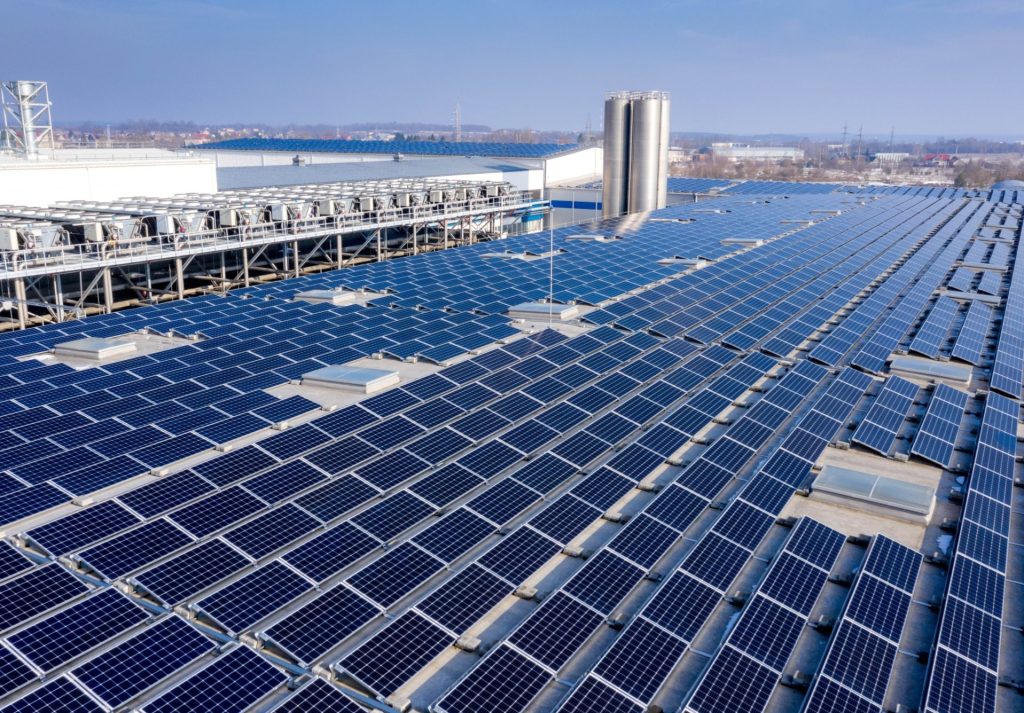Global attention continues to focus on climate change, with businesses in every sector being challenged to demonstrate genuine responsibility in how they operate. For the plastic packaging industry, that responsibility increasingly means taking bold, credible action on reducing greenhouse gas emissions, which sees renewable energy in manufacturing playing a key role.
The drive for renewable energy in industry is being shaped by more than just good intentions. With legislation such as the EU Corporate Sustainability Reporting Directive (CSRD) and the growing influence of the Science Based Targets initiative (SBTi), companies are now expected to back up their environmental claims with facts, figures, and verified progress.
Setting long-term commitments, taking provable action, and reporting in a transparent way is key. Emmanuel Duffaut, Chief Sustainability Officer at multinational plastic packaging manufacturer RETAL, explains how this can only be achieved with the right investment, expertise and effort. “Renewable electricity is no longer optional; it’s central to compliance and competitiveness. For companies like ours, using renewable electricity is about taking clear responsibility for the emissions we can control, further supporting our customers’ sustainability goals, and future-proofing our operations.”
The plastic packaging industry is under particular pressure to show that sustainability claims aren’t just greenwashing. Using renewable electricity for production helps companies meet increasing customer expectations and provides transparency when reporting environmental performance.
Ambitious yet achievable targets
RETAL’s sustainability strategy is built around clear targets that align with recognised international environmental frameworks and the strict demands for its global food and beverage brand customers. The company has committed to achieving 100% renewable electricity in all its global operations by 2030 and is already well along that journey.
As of 2024, RETAL has reached 76% renewable electricity use across its operations, reversing a temporary dip caused by recent market volatility. Facilities in Italy, Lithuania, the Baltics, Spain, Cyprus, Czech, and the U.S. have already achieved 100% renewable electricity through certified schemes.
RETAL has also invested in direct renewable energy generation. A 1.4 MW solar panel system installed at its Lentvaris plant in Lithuania, the largest of its kind in the Baltics at the time, has significantly reduced that facility’s reliance on external electricity supplies. Solar panels are also installed at its Cyprus head office location and will soon be joined by another at RETAL Baltic Films.
Duffaut continued: “Using renewable electricity is the main lever for us to meet our GHG emission reduction targets. Our long-term goal is clear; zero Scope 1 & 2 greenhouse gas emissions by 2030.”
Transparency and recognition
RETAL’s efforts haven’t gone unnoticed. The company has been included in the Financial Times’ Europe Climate Leaders list, which recognises companies across sectors that have significantly reduced their emissions intensity over a five-year period. RETAL has also achieved an A- score from the Carbon Disclosure Project (CDP) in 2023 after four consecutive years at B score, showing consistent commitment to environmental transparency, especially notable given that ‘maintaining means improving’ with this reporting structure always more demanding.
Transparent, verified reporting is a key part of building trust with customers, regulators, and stakeholders. By aligning with recognised frameworks like UNGC, GRI and TCFD (Task Force on Climate-related Financial Disclosures), companies like RETAL show that sustainability is part of everyday business.
Switching to renewable electricity and improving energy efficiency protects companies from rising energy costs and future carbon pricing, so it makes good business sense too, particularly as it also supports customers in meeting their own decarbonisation plans.
Future power – renewable energy in manufacturing
Electricity consumption is a critical aspect of manufacturing, representing both a major expense and key contributor to greenhouse gas emissions, so it must be used and sourced responsibly and efficiently. As Emmanuel Duffaut explains, “Using energy responsibly and making sure our teams have the skills to get the most from every investment goes beyond just installing equipment. We can help to create value by optimising our production efficiency and limiting our emissions, as well as choosing renewable energy sources wherever possible.”
Every organisation in the supply chain has a role to play. Making sustainable choices throughout their business, from using renewable energy, improving efficiency, or supporting circular economy initiatives, means the environmental impact of manufacturing and its supply chain can be reduced, which is everyone’s business.
For more articles like this, visit our Sustainability channel



